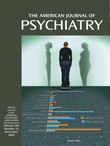Research Advance Directives: Protection or Obstacle?
Abstract
OBJECTIVE: This study assessed how many adults completed a research advance directive and the preferences indicated on the completed forms. METHOD: The authors analyzed all 2,371 adults admitted as inpatients to the NIH Clinical Center from March 14 to Sept. 13, 2000. RESULTS: Overall, 11% of adult inpatients completed a research advance directive. Of those who specified preferences, 13% were not willing to participate in future research should they become unable to consent, 76% were willing to participate in research that might help them, 49% were willing to participate in research that would not help them and posed minimal risk, and 9% were willing to participate in research that would not help them and posed greater than minimal risk. CONCLUSIONS: Proposals to allow cognitively impaired adults to participate in research only with a formal advance directive could block important research. More flexible approaches should be considered to protect these individuals.



